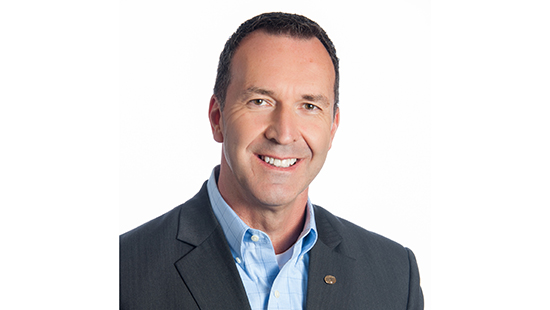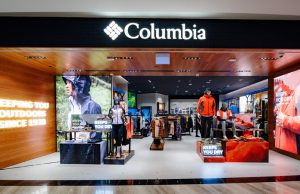Mini Me Insights had the opportunity to talk to Sean Toohey, Executive Vice President & President Asia Pacific at Ecolab on sustainability and food safety. In the interview, he also gave his insights into sustainability trends in the F&B manufacturing industry and explained how Ecolab can help F&B companies achieve sustainability through innovative technologies.
Ecolab is a US-based, NYSE-listed global provider of water, hygiene and energy technologies and services to the food, energy, healthcare, industrial and hospitality markets. The company has its Asia Pacific headquarters in Singapore.
Below is the summary of the interview:
Why should sustainability be a business priority?
Today, we are seeing more businesses operate with both business and sustainability goals. However, businesses in the F&B processing industry are increasingly looking at merging those two goals into what we now refer to as sustainable business operations. By doing so, businesses can achieve three key primary goals: the well-being of the natural environment, social benefits for people, and simultaneously generating economic value. Businesses are only able to perform well on the triple bottom line measures of profitability, sustainability, and social impact when they are designed with these key elements in mind.
Why driving food safety is never a siloed effort and how it can be achieved through partnerships?
Achieving food safety can be done within an organization through the adoption of a food safety culture, as well as outside of the business through external partnerships between key players, such as the government, suppliers, and consumers. However, we do not currently have robust models for standards and approaches that can work at scale to assure food safety. That said, there are many local initiatives to improve food safety and much can be learned by a systematic assessment of these. For instance, the Singapore Food Agency (SFA) was launched in April 2019 to improve food safety to ensure the highest quality of food is produced and distributed to the masses[1].
The adoption of partnerships to address sustainability challenges is growing exponentially, and this goes far beyond the F&B industry. Collaborations between different types of organizations across industries can help solve the greatest problems, and Ecolab is front and centre in this approach. In January 2017, we capitalized on collaboration when we partnered with JW Marriott Singapore[2]. By integrating our SMARTPOWER™ innovation, JW Marriott Singapore achieved key operational and sustainability improvements, such as increasing sustainability standards through SMARTPOWER’s sustainable packaging that reduces 96% of plastic compared to typical cartons of detergent – accounting for an annual reduction of 800kg worth of plastic.
In addition, within an organization, food safety culture should be practiced as an organization-wide effort. However, it is not a “one size fits all” proposition. Delivering this reality means that throughout the organization, food safety is defined for each member and department in terms and expectations that are both relevant and clear to them – and this must start at the top. When employees, managers, and leaders feel personally committed to delivering food safety, they will typically take the correct approach even when it is not the cheapest or fastest one. A strong organizational culture will help create and sustain commitment, and over time, good food safety practices will become the normal way of doing things, as well as a source of personal pride for employees.
What are some sustainability trends in the F&B manufacturing industry?
While some may consider it a passing trend, sustainability is quickly becoming an integral part of today’s restaurant business. Sustainable operations in the food industry, such as zero liquid discharge, are currently enforced by businesses and we will continue to see these practices furthering sustainability. It is thus important to highlight recent B2B-facing trends, as they mostly happen behind the scenes so end consumers are often not even aware of them. These trends include transparency, the push towards sustainable packaging, and leveraging innovative technology to increase operational efficiency.
First, the 3Rs approach (Reduce, Reuse, Recycle) is still very heavily practiced. In land- and water-scarce Singapore, the 3Rs play a crucial role by preventing waste generation at its source and bringing along numerous benefits. Businesses that practice the 3Rs will be ready to implement long-term sustainable solutions, improve profitability and environmental performance.
Second, the demand for total transparency in the production of food is rising, as it seems to be the most significant way to gain consumer trust. Asian consumers are becoming more interested in understanding the entire supply chain, from the origins of their food to the manufacturing processes involved. As food and beverage suppliers continue the trend of disclosing more and more information about their labor forces, their material sources, and their practices, the quality of these practices naturally increases. This helps improve consumer confidence that they are purchasing products from a conscientious and reputable business.
Third, advancements in technology are increasingly capitalized to enhance operational efficiencies in businesses. From streamlining logistics to auditing usage and production, resource management technology can offer the transparency necessary to identify gaps and inefficiencies throughout. Ecolab is always working to do more with less for greater efficiency within our own operations, and to help our customers boost efficiency and minimize their environmental impacts. As a company greatly invested in increasing operational efficiency, we leverage innovative technology to deliver insights that were previously unavailable and drive demand for smart, sustainable solutions.
How does Ecolab help satisfy the need for a sustainable way through innovative technologies?
As a socially responsible company, Ecolab develops innovative solutions to improve operational efficiency, product quality and safety, while reducing water and energy use and waste. Our innovation strategy combines chemistry, digital technology and service to deliver exponential customer value. Through digital technology, we are increasing our ability to offer real-time, actionable insights and smarter solutions that drive predictive and preventive service, delivering a superior customer experience and better outcomes.
Our products are developed in accordance with stringent sustainability standards, minimizing their overall impact on the environment. Our solutions are evaluated according to widely accepted health and environmental safety criteria.
For instance, Ecolab’s 3D TRASAR™ CIP (Clean-in-Place) technology[3] uses advanced sensors to provide process visibility with actionable data supported by Ecolab service and industry leading expertise. Through our solutions and analytics, Ecolab is able to share customers overall resource consumption, the wash summary and identification of any deviations. By making sense of the data. Ecolab enables customers to deliver its sustainability goals (through water and energy reduction), while maintaining quality and safety standards and at the same time, achieving significant operational savings.
How can sustainable business practices help bring positive changes in the food industry?
Sustainable operations in the food service industry are currently enforced by multi-national corporations and we will continue to see these practices further raising sustainability standards. This rings true to what Ecolab does, as we take a holistic approach to sustainability from how we operate and develop solutions to the way we work with customers and support communities.
With businesses placing sustainability as one of their core practices, we are positive about the future of food. Sustainable operations in the food industry must address other aspects of the farm-to-fork journey. There is also an increasing need to leverage technology to set high food security and safety standards. Only with a collaborative approach and through sustainable business practices will we deliver a better future for those who produce and those who consume.
Once again, our collaboration with JW Marriott Singapore[4] focuses on delivering quality and bringing about positive changes to the last mile of the food service journey – from fork-to-mouth. The collaborative partnership seamlessly integrates innovation into the property’s Food and Beverage operations, which aligns with the property’s vision to transform the hotel industry for sustainable growth.
[1] https://www.mnd.gov.sg/mndlink/2018/nov-dec/article5.htm
[2] https://www.ecolab.com/stories/ecolab-helps-elevate-jw-marriott-singapore-food-and-beverage-operations?utm_source=JW%20Marriott%20AP%20Campaign&utm_medium=Byline%20article-%20Surachet
[3] https://www.ecolab.com/offerings/3d-trasar-technology-for-cip
[4] https://www.ecolab.com/stories/ecolab-helps-elevate-jw-marriott-singapore-food-and-beverage-operations?utm_source=JW%20Marriott%20AP%20Campaign&utm_medium=Byline%20article-%20Surachet









